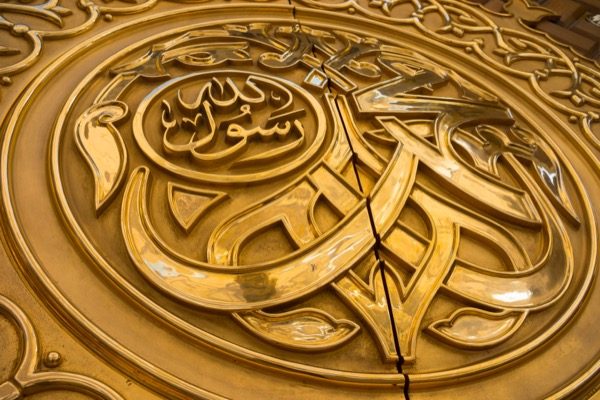
Sarmad Naveed, Canada
During the blessed month of Ramadan, Muslims are enjoined to fast, whereby they abstain from food and drink, from dawn till dusk. In the spirit of Ramadan, Muslims all around the world adhere to this salient aspect of the holy month. However, at the same time, it is seen in some instances that even small children are being made to keep fasts. Rationally speaking, it would be absolutely cruel to purposely deprive a child of food and water for the entire day. This begs the question, does the injunction of fasting apply to children? What is the right age to start fasting?
This subject has been addressed by Hazrat Mirza Bashiruddin Mahmud Ahmad (ra), the Second Caliph of the Ahmadiyya Muslim Community. As a matter of principle, he states:
‘It should be remembered that the Shari`ah [Islamic law] has forbidden young children from fasting. However, as they approach the age of maturity they can certainly practice keeping fasts. As far as I remember, the Promised Messiah (as) allowed me to keep my first fast at the age of 12 or 13.’
The Second Caliph further states:
‘According to the permission and practice of the Promised Messiah (as), when a child reaches the age of 12 or 13, they should practice [fasting] little by little. [1]
This clarifies the fact that the injunction or obligation of fasting does not apply to children. However, as the Second Caliph (ra) explains the Promised Messiah (as) allowed him to keep a fast at the age of 12 or 13. Thus at an appropriate age, children can be allowed to practice fasting by keeping a fast or two. However it would be wrong to apply the injuction of fasting during the month of Ramadan to children, The Second Caliph (ra) emphasizes the point when he states:
‘In my view, having a child keep fasts before the age of 12 is a crime; and to have a child keep fasts between the ages of 12 and 15 is wrong.’ [2]
So then at what time and age does the injunction of fasting begin to apply? The Second Caliph (ra) explains:
‘There are those who make even children keep fasts. However, every injunction and commandment has its own scope and its own time. According to our understanding, certain commandments start to apply at the age of four. There are other [commandments] which start to apply between the ages of seven and 12; and then there are those which begin to apply between the ages of 15 and 18. As far as I am concerned, the commandment of fasting begins applying to children between the ages of 15 and 18, as this is the time when one reaches maturity. The habit of fasting should start being inculcated from the age of 15 and then it should be considered obligatory from the age of 18. I remember when we were young, we too were very keen on fasting, however, the Promised Messiah (as) would not permit us to keep fasts. Rather than enjoining us to fast [at that age], he impressed upon us the importance of fasting. Hence, in order to maintain the health of children and increase their strength, they should not be allowed to fast. Then, when they reach the age where they attain strength – which is the age of 15 – then they can be allowed to fast, albeit gradually. However many [fasts] they keep in the first year, they should keep a few more the next year, and then more in the year following that. In this way, the habit of fasting should be inculcated within them gradually.’ [3]
Hence, the right time to start fasting is once a child attains strength and reaches the age of maturity. As the Second Caliph (ra) has outlined, it is permissible after the age of 15 or so, to begin practising and keeping a few fasts during the month of Ramadan. However, only after one has reached the age of maturity should they continuously fast throughout the month. The Second Caliph (ra) has outlined the general age of maturity as being 18 years; however, not everyone is the same, and every child’s growth is different. Hence, the Second Caliph (ra) explains at another instance:
‘Some children are naturally weak; I have experienced that people bring their children to meet me and they tell me that their child is 15 years old, whereas he appears only to be seven or eight years old. I think that for such children, perhaps the mature age for fasting would be 21 years. On the other hand, a very healthy child can become the equivalent of an 18 year old by the time they are only 15 years of age. However, if such a child simply holds fast to my words that the mature age for fasting is 18 years, then they do not commit an injustice against me or against God Almighty, instead, they commit an injustice against themselves.’ [4]
As the Second Caliph (ra) has elucidated, the age of maturity for fasting can vary from person to person. Whereas generally the age of maturity for fasting may be 18 years, it can vary according to a child’s individual growth.
Hence, the matter is crystal clear. Children should not fast under any circumstances, and only when one reaches the age of maturity should they begin to fast.
About the Author: Sarmad Naveed is an Imam of the Ahmadiyya Muslim Community who graduated from the Ahmadiyya Institute for Languages and Theology in Canada. He serves on the Editorial Board of The Review of Religions and coordinates the Facts from Fiction section. He has also appeared as a panelist and host of programmes on Muslim Television Ahmadiyya (MTA) such as ‘Ahmadiyyat: Roots to Branches.’
ENDNOTES
[1] Tafsir-e-Kabir Vol. 2 p. 385
[2] Al Fazal 11th April 1925
[3] Ibid
[4] Tafsir-e-Kabir Vol. p. 385




Add Comment